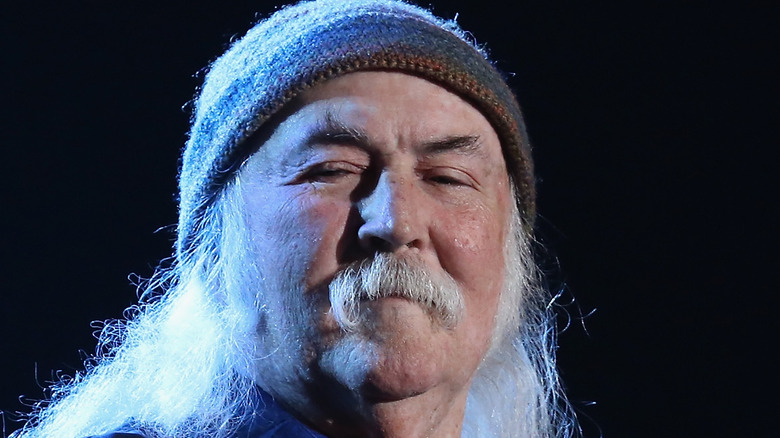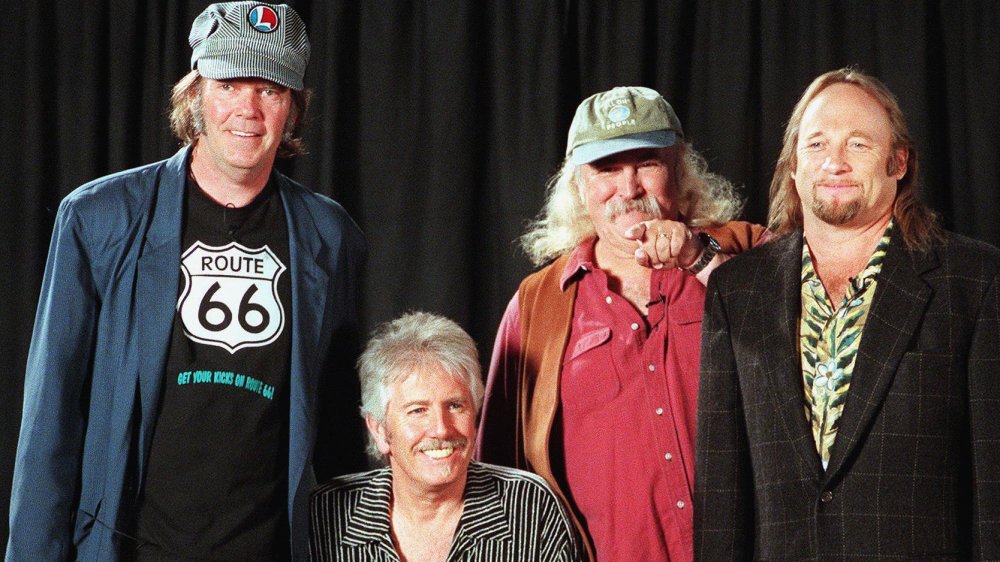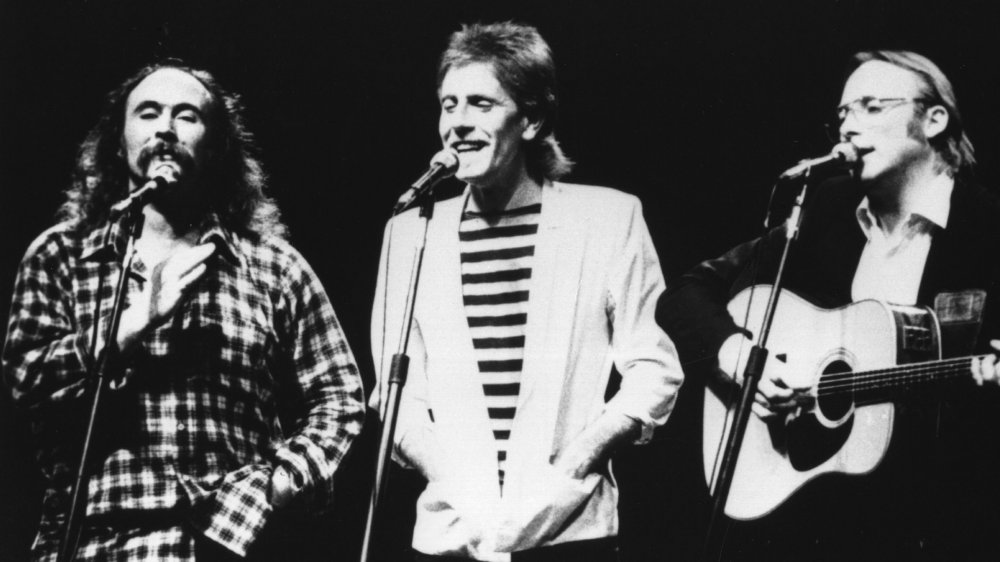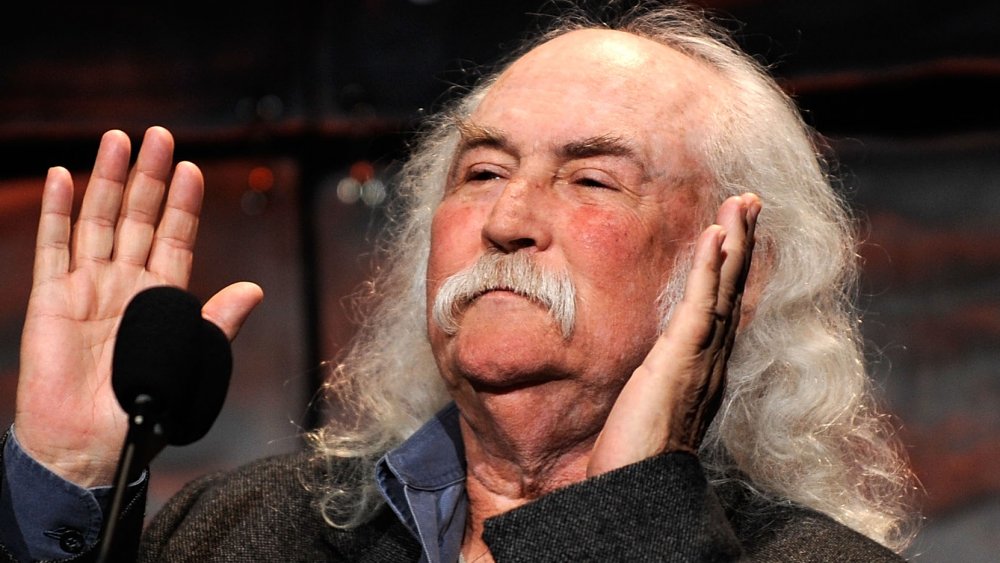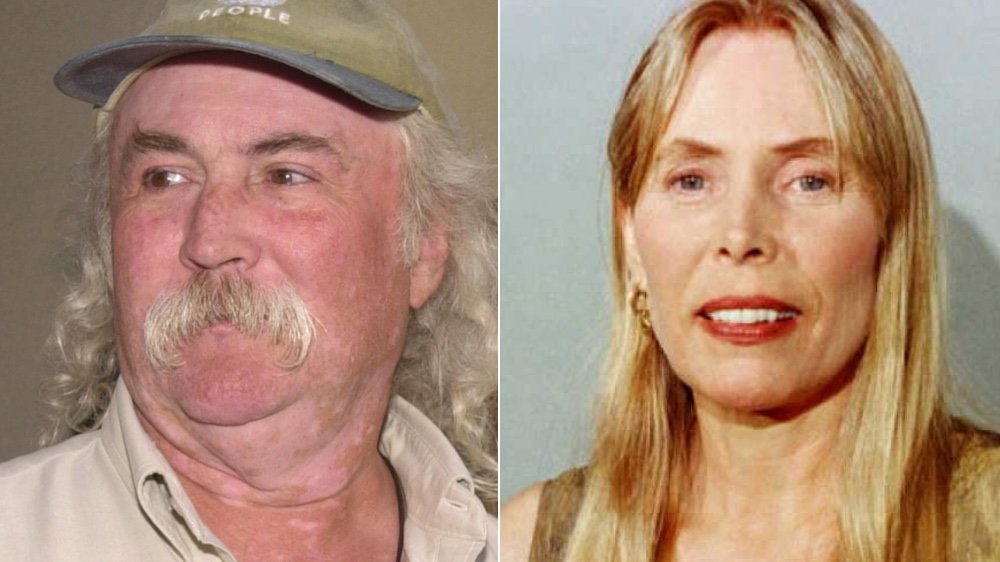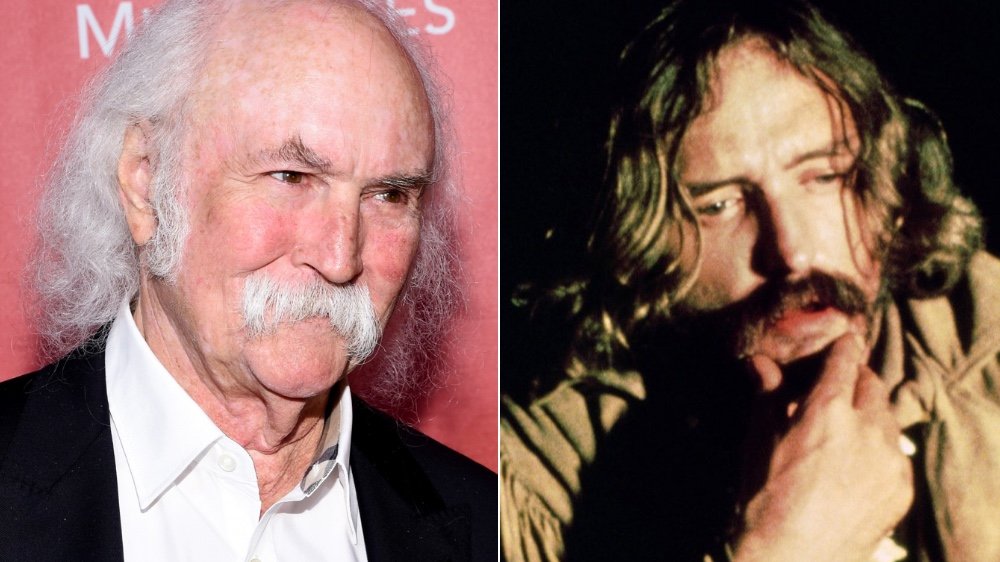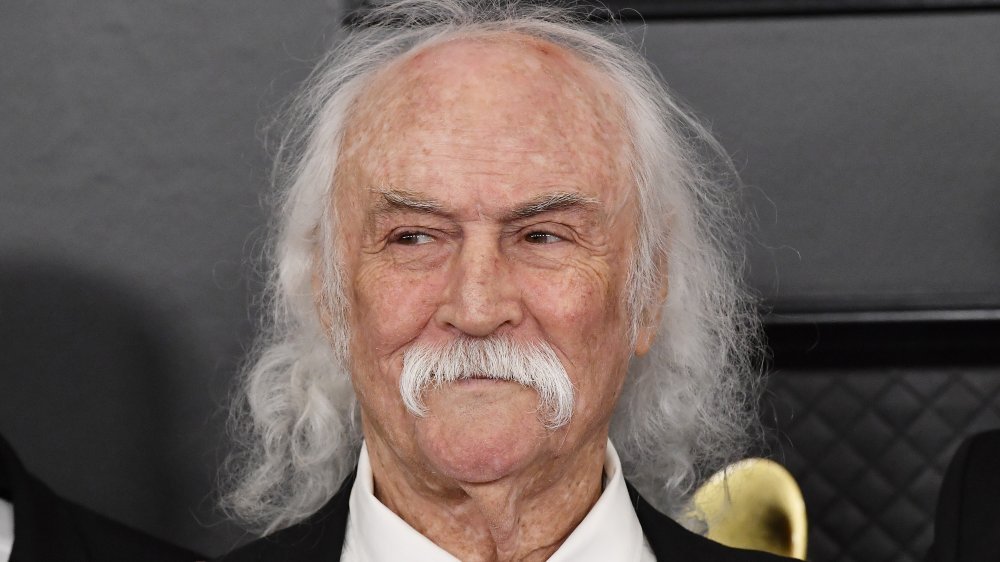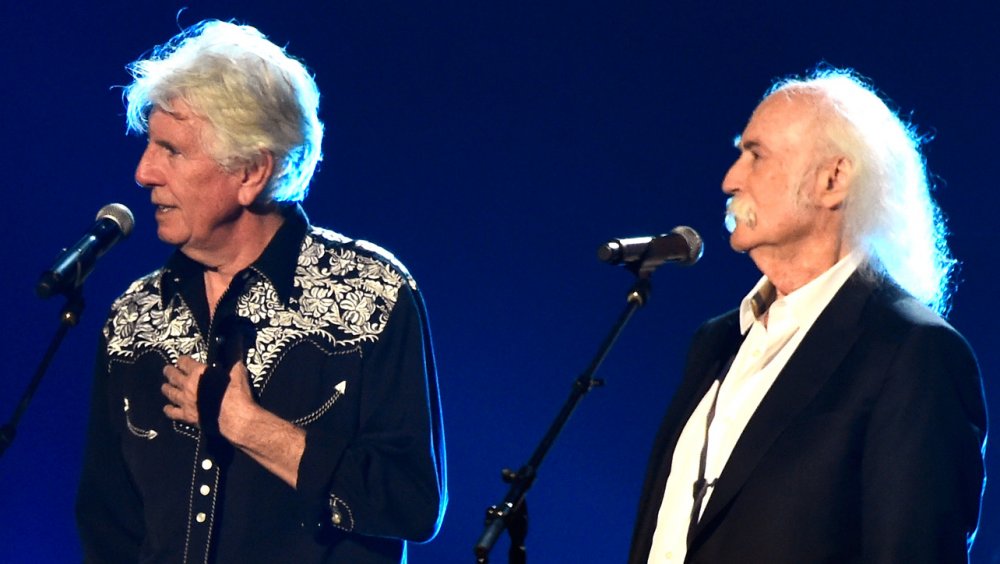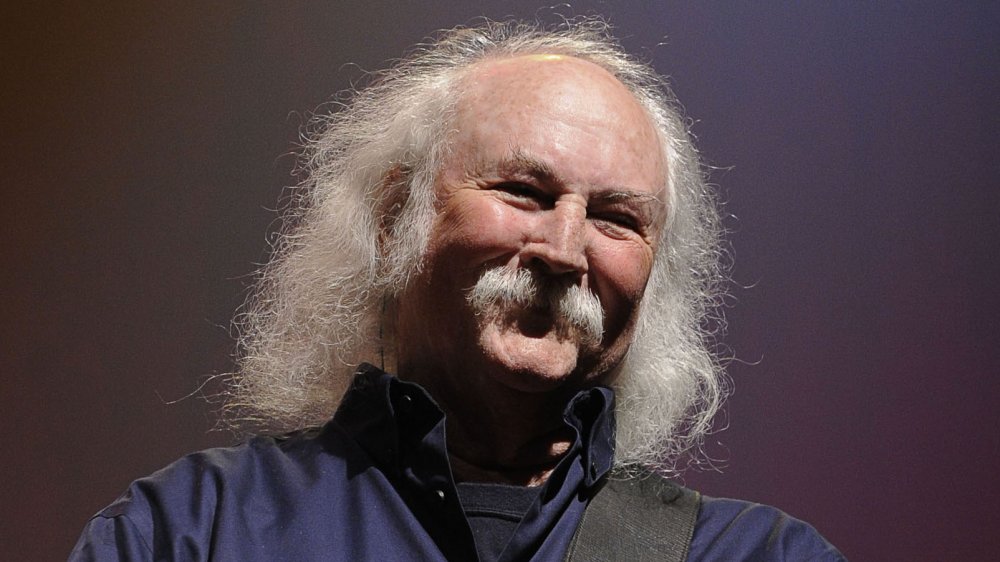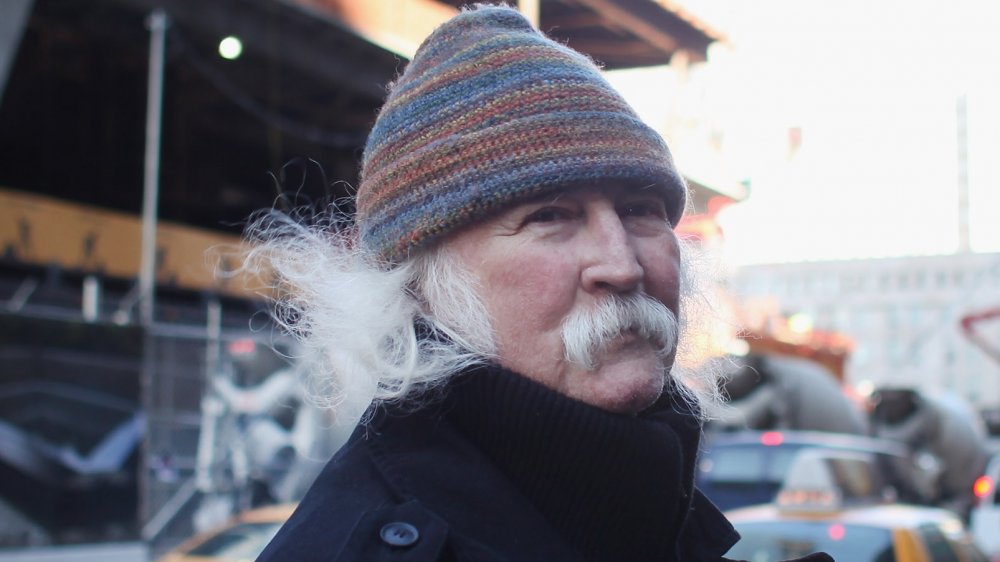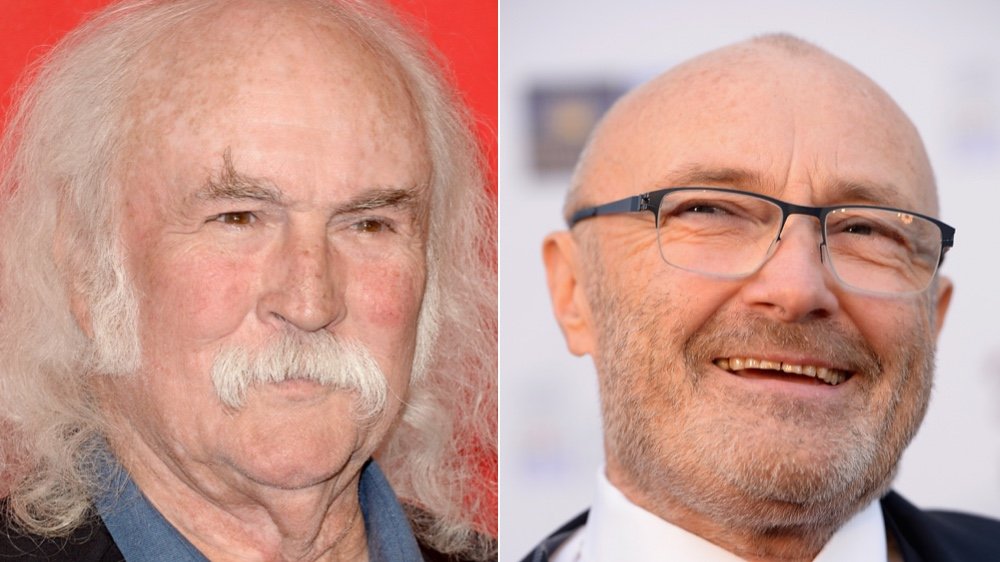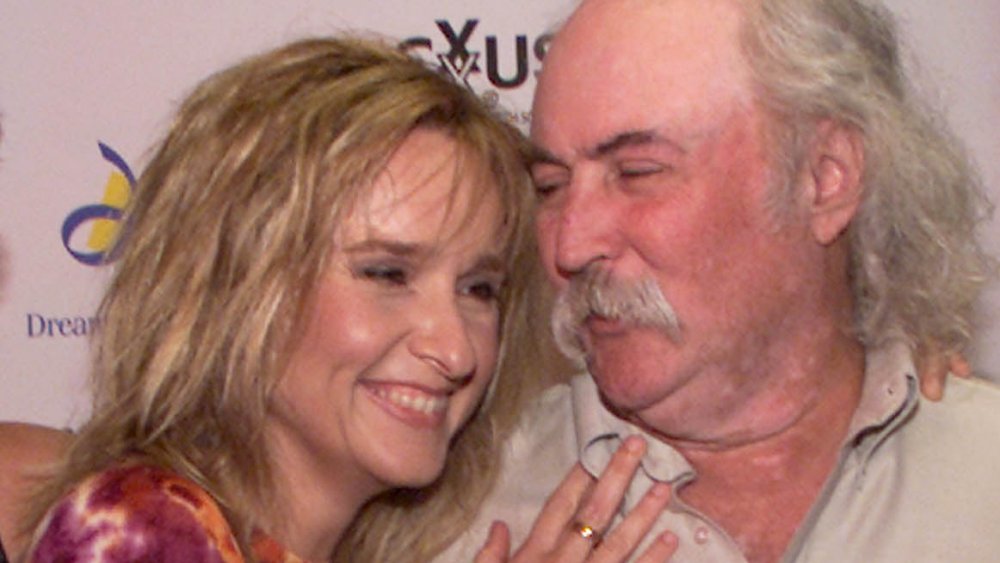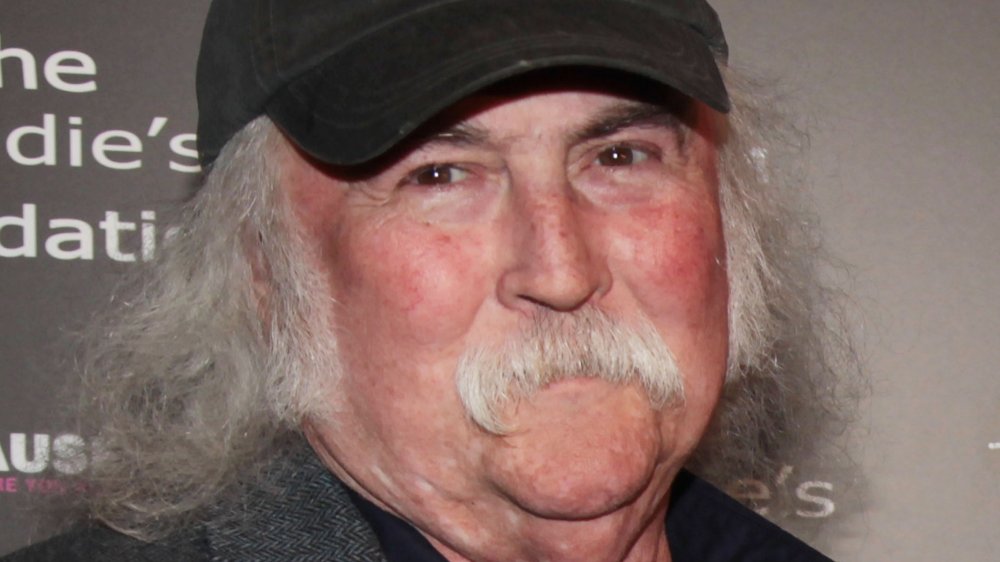David Crosby: 12 Facts About The Late Musician
David Crosby — with his acoustic guitar strumming, heavenly vocals, harmonizing ability, and legendary mustache — has been knocking around the biggest stages of rock and pop for nearly 60 years. First coming to fame as a member of the jangly guitar rock band the Byrds, he became the voice of a generation as a member of Crosby, Stills & Nash (and sometimes Young), with sweet and hypnotic Baby Boomer and counterculture folk anthems like "Marrakesh Express," "Teach Your Children," "Ohio," "Just a Song Before I Go," and "Woodstock," an account of the legendary music festival at which Crosby played.
Crosby cranked out music — and commanded respect and enjoyed fame — for over six decades, building an impressive legacy and well-lived life, with nothing much wasted on the way. You probably won't get déjà vu, but you might find something to teach the children as you dive into his life, which is anything but gentle and folksy.
David Crosby invented the supergroup
Crosby, Stills, Nash & Young are one of the best-known — and most simply named — bands in the history of pop music, yet each of its four members have established and acclaimed solo careers apart from the group, not only after CSNY broke big but before, too. As told by People, Crosby, Stills, Nash & Young are rock n' roll's first ever "supergroup," meaning that the band was formed not in some garage by a bunch of unknowns but consists of already famous musicians moonlighting from their regular gigs.
Prior to the formation of CSNY in 1968, David Crosby was a guitarist and singer in the extremely popular 1960s band the Byrds ("Eight Miles High," "Turn! Turn! Turn!"), Graham Nash had been a member of the Hollies ("Bus Stop"), and Stephen Stills played with Buffalo Springfield ("For What It's Worth"). Neil Young had been in Buffalo Springfield, too, along with some solo efforts. Over the years, various groupings of those four musicians have played together off and on, but they all called it a day relatively recently, officially splitting up in 2016 (via The Wrap).
By the time he got to Woodstock, it was weird
The Woodstock Festival, which attracted nearly half a million hippies, notes History, in search of peace and music to upstate New York in August 1969, is arguably the most famous individual concert of all time and the definitive multi-act extravaganza. Some of the biggest acts of the day played at Woodstock, including the Grateful Dead, Jefferson Airplane, and Jimi Hendrix, as well as a brand-new band called Crosby, Stills, Nash & Young, who were paid just $5,000 for the appearance, according to Consequence of Sound.
The constituent individuals of CSNY were well-known, but the group itself was a new endeavor. "This is the second time we've ever played in front of people, man," Stephen Stills said onstage (according to People magazine). "We're scared s***less!" They were probably also just tired — Crosby and the rest didn't take the stage until about 3 a.m. on August 18, making them one of the last acts to perform, according to the Bethel Woods Center for the Arts.
His career owes a lot to jazz
It would be fair to call David Crosby's music "folk," but he was heavily influenced by jazz greats like Chet Baker, Dave Brubeck, and John Coltrane. Crosby told Jazz Times that his main contribution to the Byrds was constantly filling the band's motor home with the sounds of Coltrane. "We had a reel-to-reel player in the back," Crosby said. "I kept playing 'Africa/Brass.' Roger is a very talented guy, and he's very good at being affected by another kind of music and taking it into his stream. He would never have thought of the solo he played on 'Eight Miles High' if he hadn't listened to Coltrane." He even credited the way he sings, to jazz: "I'd been listening to really good horn players and I'm sure they affected me in terms of phrasing and melody choice."
Another jazz legend gave Crosby his big break. "He's the reason the Byrds signed to Columbia Records," Crosby told Vanity Fair. Executives at the label played the Byrds' demo for one of its biggest acts, Miles Davis. "The bosses asked Miles, 'What do we do with this?' because he was the hippest guy there. And he said, 'Sign 'em.' " Davis stayed a fan — in 1970, he covered Crosby, Stills & Nash's 1969 tune "Guinnevere."
When David met Joni
Two of the biggest musical talents of their generation got together in a romantic fashion in 1967, and we're not talking about Sonny and Cher. According to David Browne's "Crosby, Stills, Nash & Young: The Wild, Definitive Saga of Rock's Greatest Supergroup," acclaimed singer-songwriter David Crosby started dating acclaimed singer-songwriter Joni Mitchell around the time he produced her first album, "Song to a Seagull." It fell apart quickly, in part because Crosby treated Mitchell "like a prized, talented possession." It made her angry enough to dump Crosby, and she did it in the form of playing a tune she wrote: "That Song About the Midway," which refers to a repeat philanderer who can sing beautiful harmonies. (In other words, Crosby.) Crosby would later recall, "She sang it while looking right at me, like, 'Did you get it? I'm really mad at you.' And then she sang it again. Just to make sure." Mitchell moved on to a new boyfriend: Graham Nash, who was still in the Hollies at the time and not yet Crosby's bandmate.
In 2019, Crosby admitted to the New York Post (via Fox News) that decades later, things remained complicated but cordial with Mitchell. "I do see her and talk to her," he said. "I had dinner with her at her place a couple months back. And I do still love her. Our relationship has always been thorny but good."
He inspired Easy Rider
"Easy Rider," the 1969 motorcycle road trip epic, was almost as much of a watershed cultural moment for the counterculture as that year's Woodstock festival. Co-written by stars Peter Fonda and Dennis Hopper, the film's backing music is made up entirely of rock songs — a novel idea for the time — including "Born to Be Wild" by Steppenwolf and two songs by David Crosby's band the Byrds.
By the time "Easy Rider" was in production, the Byrds were over, and Crosby had flown over to Crosby, Stills & Nash. Originally, Fonda wanted Crosby and his new band to write an entire, wholly original score for the film, and as a placeholder, editor Donn Cambern synched up the images with pre-existing rock songs, instead. "Originally he was just making it more interesting, but the music became inseparable from the pictures," cinematographer Laszlo Kovacs told MovieMaker (via Ultimate Classic Rock).
It fell on Hopper to break the news to Crosby and company, and as he recalled in the book "Easy Riders, Raging Bulls," he threatened "bodily harm" to the band should it try to record anything for his movie. That's an ironic ending to the story of Crosby and "Easy Rider," since in a 1970 Rolling Stone interview and in the 2019 documentary "David Crosby: Remember My Name" (via Butler's Cinema Scene), he claimed to be the inspiration for Hopper's character. (Crosby said on Twitter Hopper once told him so.)
Whoa, Déjà Vu, man
Although it was never officially marketed as a single, "Déjà Vu" became one of Crosby, Stills, Nash & Young's best-known songs, and it was the title track of its best-selling album, released in 1970. The tune is, of course, named after — and describes the eerie feeling that results from — that relatable neurological phenomenon in which an experience feels suddenly and powerfully as if it has happened once before.
David Crosby wrote and sang lead on the song, and it was inspired by a very real and very strong case of déjà vu when riding on a friend's sailboat. "It's as if I had done it before. I knew way more about it than I should have. I knew how to sail a boat right away," he said in Peter Doggett's "Crosby, Stills, Nash & Young" (via Songfacts)."I felt then and now that I have been here before."
David Crosby and his bandmates were longer in harmony
Their voices blend together so magically, and they've recorded so many songs and played so many concerts together, yet different members of Crosby, Stills, Nash & Young don't get along very well. But nearly all agreed that any enduring animosity is David Crosby's fault. "I want to work with all four of us. That's what I want to do," Crosby told The Wrap in January 2019. "I'll take more blame than anybody for being a s**thead to my friends in that group."
In response, however, Graham Nash said a reunion was out of the question. "The truth is, none of us are speaking to David. Not me, not Stephen, not Neil," he told the Pittsburgh Post-Gazette. "And that's the way it is. We have to like and love each other to be able to make great music." That echoes what Nash told Billboard in 2016. While not saying exactly what Crosby did to make him so mad, Nash said he'd "saved his f***ing a** for 45 years," yet Crosby "treated [him] like sh*t."
As for Neil Young, Crosby upset him in a 2015 interview with the Idaho Statesman during which he cruelly and alliteratively called Young's girlfriend, actress Daryl Hannah, a "purely poisonous predator." Crosby apologized, but it apparently didn't do much to ease band tensions.
He is Vatican-approved
As a major classic rock figure, David Crosby was somewhat accustomed to honors like an album he recorded appearing on a "best of all time" list. For example, Rolling Stone named Crosby, Stills, Nash & Young's 1970 LP "Déjà Vu" the No. 147th best album of all time. But he was a bit taken back in 2010 when his experimental and somewhat overlooked 1971 debut solo album "If I Could Only Remember My Name" was named the second-greatest rock album ever made, and by an unlikely party: the Roman Catholic Church. L'Osservatore, the official newspaper of the Vatican, published the list (via The Week), topped by the Beatles' "Revolver" and with Pink Floyd's "The Dark Side of the Moon" ranking just below Crosby.
"No one has yet worked out what the hell that was all about," Crosby told Q. "If baffles me as much as it baffles you, man."
He went to jail a couple of times
David Crosby used drugs and carried guns — and both got him into trouble on several occasions. After the murder of John Lennon in 1980, anti-violence and anti-war rock star Crosby began carrying a handgun for personal protection, according to Ultimate Classic Rock. He had that firearm on his person when he was arrested in a nightclub in Dallas in 1982 for freebasing cocaine, to which he'd been profoundly addicted for over a decade, per the Chicago Tribune. To avoid prison, he agreed to check into a rehab facility, but he left after two days because they wouldn't let him have musical instruments. The next day, he was arrested in New York for cocaine possession and was ultimately sentenced to five years for the Dallas charges.
In March 2004, Crosby left a suitcase behind at a hotel in New York City, and when an employee looked for an identification tag, he stumbled upon a small amount of marijuana and a loaded handgun, according to The New York Times. When Crosby came back to the hotel to get the bag, he was arrested, spent 12 hours in jail, posted bail, pleaded guilty to criminal weapon possession, and paid a fine.
Thanks for the new liver, Phil Collins
In 1993, David Crosby released "Thousand Roads," which included his biggest-ever solo single, "Hero," a duet with Phil Collins that proved to be a smash hit in the world of soft rock radio. The Genesis drummer turned adult contemporary hitmaker gave Crosby another assist in 1994. After contracting hepatitis C, not to mention years of drug abuse, Crosby received a life-saving liver transplant – and Collins reportedly paid for the surgery. Crosby won't completely confirm that. "Phil Collins did help me enormously. I'm not going to get into the specifics about how," he told The Guardian. "But he did help me tremendously."
Not everyone was happy that Crosby got a new liver in the nick of time. According to Transplant News, there was widespread and negative speculation at the time that Crosby's celebrity and connections bumped him up the list of people in line to get a liver.
His secret-ish son Beckett died
Gravelly voiced blues rocker Melissa Etheridge and her partner, filmmaker Julie Cypher started a family in the late 1990s. Daughter Bailey Cypher was born in 1997, and son Beckett Cypher followed in 1998. The couple made that possible with donated sperm but refused to reveal the identity of their children's biological father until a February 2000 Rolling Stone cover story. Posed alongside Etheridge, Cypher, and their babies was the recognizable face of rock legend David Crosby.
A few years earlier, Etheridge and Cypher had popped over to Crosby's home and mentioned that they were thinking of having kids. "And Jan [Crosby's wife] said, 'What about David?' " Etheridge recalled. After a year mulling it over, they officially asked Crosby to help them out. Tragically, on May 13, 2020, Etheridge announced that Beckett had died. "Today I joined the hundreds of thousands of families who have lost loved ones to opioid addiction," Etheridge wrote of Beckett (via USA Today), who was just 21.
Crosby has another child for whom his parentage was once shrouded in secrecy. In the 1960s, he was briefly in a relationship with a woman, and when she became pregnant, they gave the child up for adoption, as per The Baltimore Sun. Crosby and his son, James Raymond, a keyboard player and composer, were reunited in 1994. Raymond played in Crosby's backing band.
David Crosby's health and financial issues
The last decade or so was tough for David Crosby. In 2019, he asked former Byrds bandmate Roger McGuinn over Twitter if he was interested in a Byrds reunion. McGuinn didn't reply, but his representative did, to Rolling Stone, writing that Crosby "is not hated but that doesn't mean anyone wants to work with him." Those comments came not long after Crosby, Stills & Nash compatriot Graham Nash told Billboard that he doesn't "want anything to do with Crosby at all."
And it's not like Crosby could hit the road solo. In 2020, a number of his tour dates were postponed indefinitely after a near-nationwide ban on concerts in the wake of anti-coronavirus measures. "Touring is all we got. That's really the only thing that we can do to make any money," Crosby told GQ. "If I lose the tours, I probably will lose my home."
Crosby's health issues were just as trying. In 2008, he was no longer as heavyset as he'd once been after an announced weight loss of 55 pounds — tied in to a diagnosis of Type 2 diabetes, according to SFist. Health problems continued to mount: In 2014, a routine cardiac stress test uncovered a 90% blocked coronary artery, requiring immediate surgery in order to prevent a potentially serious heart attack.
Sadly, CNN reported Crosby passed away on January 19, 2023, due to an undisclosed illness, according to a statement by his family. He was 81.
